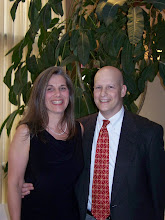As a college student and student of anthropology, I was trained in the methodology of participant observation: informal interviews, direct observation, collective discussions, analyses of personal documents produced within the group, self-analysis, life-histories, and participation in the life of the group.
For four years, my participation in a Greek fraternity served as my training ground for developing these skills.
Though I have never been employed as an anthropologist, these skills have helped me in my work as a teacher, pastor, and – for a few years – as a salesman. Most often, these skills have been employed informally rather than formally.
At times, I have been more of a participant that an observer. I have been so immersed in the tasks at hand that I have failed to really observe how everything fits into the “big picture.” These days, I am more of an observer than a participant. Having fewer opportunities to participate in “the life of the group,” I have had to be content with being an observer of what is going on around me.
And, I must say that, for the most part, I am encouraged.
I am certainly encouraged as I see the evidence of God working in the people around me. Repentance. Reconciliation. Restoration. Restitution. God continues to bring people to Himself and to use them for His glory.
I am encouraged as God’s people grasp the depth of His love and strive to love others. Brokenness. Humility. Forgiveness. Not only have I observed people loving people, but I have been a recipient of that love.
Participation, for me, consists of intercessory prayer and providing encouragement where I can. As I observe the functioning of the body of Christ, I appreciate the time that God had given me to watch and to learn, but long to be a more active participant. To put into practice what I have learned.
One of the basic tenets of participant observation is that one cannot be a participant-observer without somehow affecting the group. [A social application of the Heisenberg Uncertainty Principle, for those who remember high school physics.] In anthropology, this is often seen as a problem, because social scientists seek objectivity, however elusive that may be. In real life, in body life, my participation is meant to influence the group. This is God’s design. Paul Tripp describes body life in this way:
When God calls you to Himself, He also calls you to be a servant, an instrument in His redeeming hands. God uses people, who are themselves in need of change, as instruments of the same kind of change in others.
Tripp adds,
Our goal is to help one another live with a “God’s story” mentality. Our mission is to teach, admonish, and encourage one another to rest in His sovereignty, rather than establishing our own; to rely on His grace rather than performing on our own; and to submit to His glory rather than seeking our own. This is the work of the kingdom of God: people in the hands of the Redeemer, daily functioning as His tools of lasting change.
We are all participant observers. As followers of Jesus Christ, we all participate in the life of the group. Body life. We each have a responsibility to help one another to see our place in God’s sovereign plan and to help one another to be more like Jesus Christ, our Savior and our Lord.
Subscribe to:
Post Comments (Atom)

1 comment:
Nice blog! I remember a blog about covenant marriage seminars with a similar discussion. What a coincidence.
Post a Comment